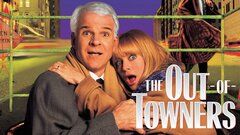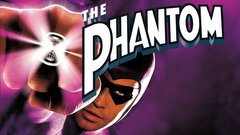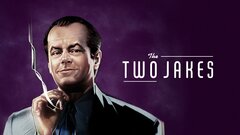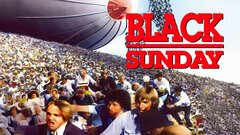Robert Evans was a legendary super-producer who was responsible for bringing to the big screen some of the most timeless classics of the "New Hollywood" era, among them "Rosemary's Baby" (1968), "Love Story" (1970), "The Godfather" (1972), and arguably his greatest achievement as a producer, Roman Polanski's "Chinatown" (1974).
Born and raised in New York's Upper West Side, Evans grew up in a wealthy family during a time when most Americans were struggling financially due to the Great Depression. By the 1940s, when he was in his teens, Evans got his first brush with show business by doing voice acting work for radio. With his crisp, deep voice, Evans was a common presence of numerous radio shows throughout the 1940s. By his own estimate, he did voice work for upwards of 300 radio shows by the age of 18.
In his early 20s Evans teamed up with his brother to open a clothing business that sold women's apparel. He proved to be a natural salesman, and by his mid-20s, the business had made him wealthy. Already in his mid-20s, Evans was living the American dream. He was rich, he was good-looking, and he was successful. Little did he know that his life was about to change forever.
One day in November of 1956, while on business in Los Angeles, Evans was sitting by the pool at the Beverly Hills Hotel when he was spotted by the actress Norma Shearer. Shearer took an immediate liking to Evans and suggested that he play her late husband Irving Thalberg in the film "Man of a Thousand Faces" (1957). Evans agreed, and after much convincing from Shearer, the studio cast him in the role, despite his limited acting experience.
Later that year, luck would strike yet again for Evans when Daryl Zanuck cast him as the bullfighter Pedro Romero in the film adaptation of Hemingway's "The Sun Also Rises" (1957). None of the actors in "The Sun Always Rises" wanted Evans in the film, and neither did Hemingway. However, Zanuck eventually sent a telegram to the crew, telling them, "The kid stays in the picture." Evans was so moved by the fact that Zanuck went to bat for him, that he later named his 1994 autobiography and a 2002 documentary about his life and career "The Kid Stays in the Picture," as an homage to Zanuck.
Despite rising from relative obscurity to appear in both films, as well as "The Fiend Who Walked the West" (1958) and "The Best of Everything" (1959), Evans grew disenchanted with acting by the early 1960s and gave it up. He then turned his attention to producing, and landed a coup in 1966 when he bought the rights to a novel called The Detective, which he made into a movie two years later with Frank Sinatra as the lead.
Having shown early promise as a producer, by the late-1960s Evans was installed as the head of production at Paramount Pictures. The studio had fallen on hard times and was looking for some kind of spark, so it was able to take a chance on the unknown producer. Paramount's bet proved to be prophetic, because over the next several years Evans managed to turn Paramount around. With Evans as head of production, Paramount released some of the most celebrated films of the late 1960s and early 1970s, among them "The Odd Couple" (1968), "Love Story," "Serpico" (1973), "The Godfather," "The Godfather: Part II" (1974), "The Conversation" (1974), and "Chinatown" (1974).
After overseeing an unprecedented string of hits while heading production at Paramount, culminating with 1974's Academy Award-winning "Chinatown," Evans made a deal with the studio that allowed him to produce films independently while he maintained a working relationship with Paramount. As the 1970s came to a close, Evans continued producing successful films, among them "Marathon Man" (1976), "Black Sunday" (1977) and "Urban Cowboy" (1980).
If the 1970s were the highpoint of Robert Evans' producing career, the 1980s would be the beginning of his fall from grace, as he became overwhelmed with both personal problems and professional failures. Evans produced only two films over the course of 12 years - "The Cotton Club" (1984) and "The Two Jakes" (1990) - both of which were critical failures. He was also plagued by problems off screen.
In 1980 Evans was convicted of cocaine possession, and after agreeing to a plea deal, had to film an anti-drug commercial for television. Then just a few years later, Evans was caught up in another scandal when Roy Radin, a potential producer for "The Cotton Club" who Evans became involved with, was murdered by a contract killer in 1983. Although Evans was not involved in the murder, his marginal association with the scandal, which had been dubbed "The Cotton Club Murder" in the press, had further tarnished his reputation.
By the early 1990s Evans had begun producing regularly once again. He produced "Sliver" (1993), "Jade" (1995), "The Saint" (1997), "The Out-of-Towners" (1999), and "How To Lose Guy in Ten Days" (2003), the latter of which would be his final film producing credit. In his later years Evans narrated a documentary about his life and career, 2002's "The Kid Stays in the Picture," And also created the short-lived animated series featuring a fictionalized version of himself called "Kid Notorious" (Comedy Central, 2003).
Despite not having produced a film since 2003's "How to Lose a Guy in 10 Days," Evans continued developing movie ideas at his office on the Paramount Lot right up until the end. He passed away on October 26, 2019 in Los Angeles. Robert Evans was 89.


























































